Keywords: Industrial
There are more than 200 results, only the first 200 are displayed here.
-
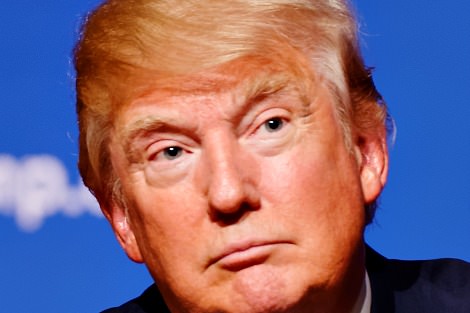
ENVIRONMENT
- Greg Foyster
- 03 August 2016
6 Comments
The neoliberal right is losing political power to the populist right, which isn't filled with the same ideological zeal for free-market capitalism. Suddenly debates can expand beyond the narrow confines of economic growth. Moral and social arguments won't be relegated to the intellectual fringes anymore. Mainstream parties of the left and right, both of which bought into the neoliberal agenda, will have to break their bipartisan dismissal of discontent with the side effects of globalisation.
READ MORE 
-
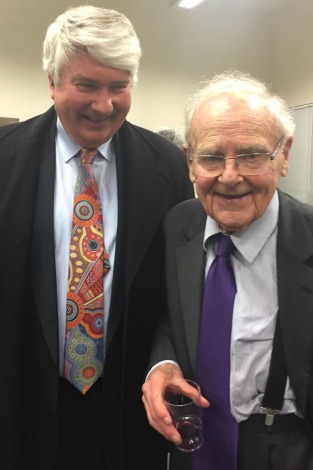
INTERNATIONAL
- Frank Brennan
- 26 July 2016
3 Comments
John traces the political ascent and descent of Sturzo whose first public office was as mayor of his own town. The chapter headings mark each step up and down the Everest of Italy's experiment with democracy and fascism: the emergence of political Catholicism in Italy; the dream takes shape; democracy without direction; democracy in decline; the search for a leader; the stick and the carrot; the voice of the watchman; and enter the night. Sturzo goes into exile; Mussolini takes over; and the Vatican is well pleased because the Roman Question is finally resolved in 1929 with the Lateran Treaties negotiated by Mussolini and Pope Pius XI, each of whom got what they were looking for.
READ MORE
-

AUSTRALIA
- Brendan Byrne
- 27 June 2016
15 Comments
Whether or not the person in the now notorious 'fake tradie' ad is or isn't a 'real' tradie is irrelevant. What is relevant is that it is a primary example of the co-option of the language of class struggle and economic justice that has so thoroughly poisoned economic debate in the industrialised West. Implicit within it is a patronising view of the working class that dismisses them as gullible dupes who can be made to entrench the privilege of the few in return for the paltry crumbs of consumer hedonism.
READ MORE 
-
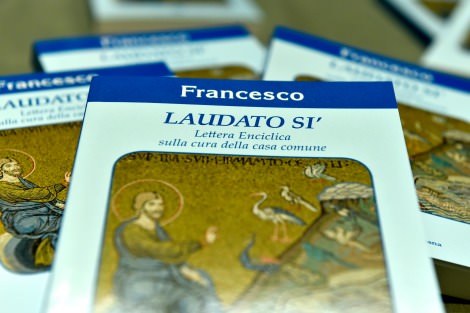
ENVIRONMENT
- Neil Ormerod
- 22 June 2016
23 Comments
It is now 12 months since Pope Francis issued his environmental encyclical Laudato Si'. He opined, 'Although the post-industrial period may well be remembered as one of the most irresponsible in history, nonetheless there is reason to hope that humanity at the dawn of the 21st century will be remembered for having generously shouldered its grave responsibilities.' Where are the Australian politicians who can give hope to the coming generation by focusing our attention on this most urgent issue?
READ MORE 
-
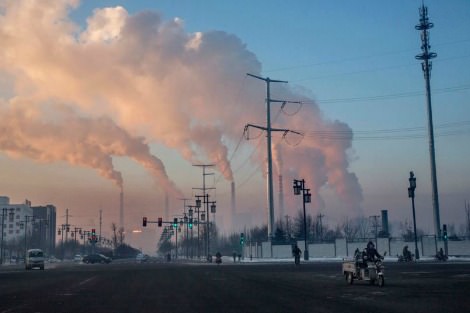
ECONOMICS
There is little doubt that the means to dramatically reduce the amount of pollution produced by developed economies is already theoretically available. It is perfectly possible to redesign industrial systems so that they do not pollute and do not consume finite resources at a rate that is unsustainable. But it requires a radical shift - and the biggest barrier to that shift occurring, the financial markets, is barely even mentioned in discussions of the challenge.
READ MORE 
-
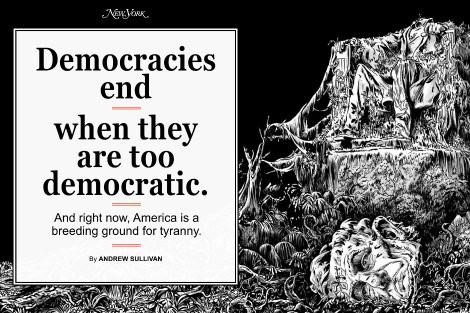
AUSTRALIA
- Jeff Sparrow
- 08 June 2016
9 Comments
Will Clinton defeat Trump? Perhaps - but the polls already show him doing far better than anyone expected. More importantly, an electoral loss might mean the end of Donald Trump but it won't destroy Trumpism. The constituency into which the Donald has tapped will almost certainly grow under the administration of a corporate Democrat like Clinton, even if it manifests in a different form. And what then? How much larger and heftier will the barriers against the popular will have to become?
READ MORE 
-

AUSTRALIA
- John Warhurst
- 31 May 2016
16 Comments
When the big parties condemn the idea of a hung parliament it is just self-interest, as when both Malcolm Turnbull and Bill Shorten expressed their horror at the prospect of any sort of alliance with the Greens. It was surprising that Shorten missed the opportunity to defend the legacy of the Gillard government, a successful minority government which executed a considerable legislative program. If he allows 2007-13 to be portrayed as disaster years it will hurt his chances of becoming prime minister.
READ MORE 
-

AUSTRALIA
- Somayra Ismailjee
- 20 May 2016
33 Comments
The irony of trying to negate these stereotypes is that in doing so, we are still cheapening asylum seekers to political tools, stripping them of their humanity and multiplicity. Aiming to counter such rhetoric as Dutton's with stories of high-achieving refugees plays into a toxic game that legitimises the same negative stereotypes by engaging with them. Just as invisibility dehumanises asylum seekers, so does the hypervisibility we attribute to a select few stories.
READ MORE 
-
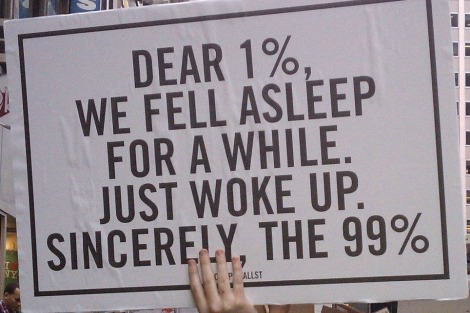
AUSTRALIA
- Fatima Measham
- 18 April 2016
10 Comments
People are sensitised to government-enabled corporate excess and doubt elected officials are capable and willing to serve their interests. The lesson from the 2014 federal budget is that there are non-negotiables around the function of government: to provide the conditions that ensure the flourishing of all citizens. Yet in terms of future-proofing living standards, the Coalition has so far presided over an ideas bust rather than boom, unless boom is the sound of something spontaneously combusting.
READ MORE 
-
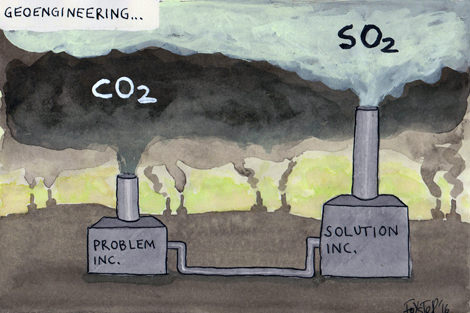
ENVIRONMENT
- Greg Foyster
- 14 April 2016
10 Comments
Geoengineering means intervening in the Earth's climate to offset global warming. It's hacking the planet on a monumental scale. The most widely studied proposal is spraying sulphate particles into the upper atmosphere to reflect sunlight, cooling the planet. The idea comes from huge volcanic eruptions, which can blast millions of tonnes of sulphur into the stratosphere, creating a kind of chemical sunshade. After decades of being taboo, this outlandish scheme is now being taken seriously.
READ MORE 
-
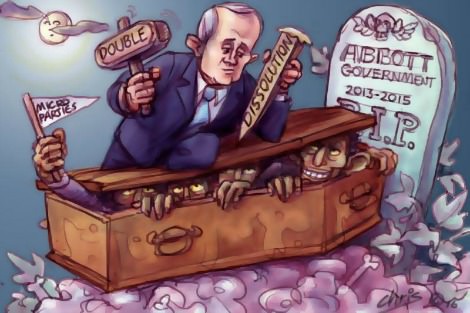
AUSTRALIA
- John Warhurst
- 24 March 2016
4 Comments
Media reaction to Malcolm Turnbull's decision to recall Parliament on 18 April was remarkably glowing. The move was acclaimed as a masterstroke and his decisiveness applauded. However the path Turnbull has laid out and the roadblocks that still remain is actually more complex. His plan may be too clever by half, and reflects a misreading of the nature of modern Liberal factional politics. His internal conservative party opponents are cultural warriors, not old-style economic advocates.
READ MORE 
-

AUSTRALIA
- Fatima Measham
- 14 March 2016
10 Comments
The debate over the Coalition's proposed senate voting reforms has highlighted the inter-party brokering that brings candidates into office. Yet if representative democracy were predicated on transparency, then another area deserves scrutiny: preselection. The mechanism for choosing party representatives clearly relies on powerful backers - politics - rather than merit. That is an obvious thing to say. But it carries repercussions for governance with which we have yet to grapple.
READ MORE 